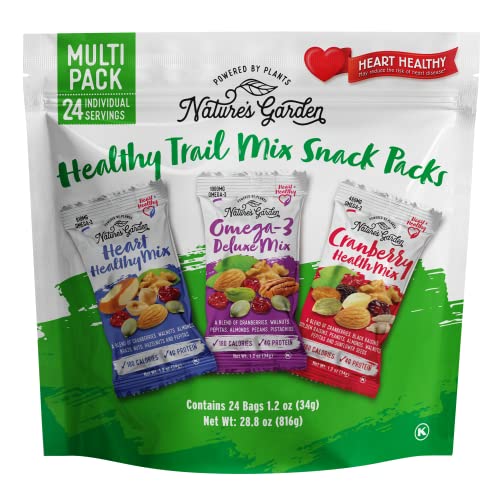Is peanut butter crackers a healthy snack? That’s a question that many people have been wondering about lately. Peanut butter is a good source of protein and fiber, and it’s also high in monounsaturated fats, which are advantageous for your health. However, not all peanut butter crackers are created equal. Some brands are loaded with sugar and unhealthy ingredients, while others are made with healthier ingredients.
So, is peanut butter crackers a healthy snack? Are there any benefits to eating them, or are they just empty calories? We’ll look at peanut butter crackers’ health effects in this post.
What Are the Nutritional Benefits of Peanut Butter Crackers?
Peanut butter crackers are a classic snack food that many grew up eating. They’re tasty, easy to eat on the go, and pair well with various other foods. But what about their nutritional value? Are peanut butter crackers actually good for you?
The short answer is yes – peanut butter crackers can be part of a healthy diet. Here’s a closer look at the nutritional benefits of this popular snack food.

Peanut Butter Crackers are a Good Source of Healthy Fats
One of the main ingredients in peanut butter crackers is, of course, peanut butter. Peanut butter is a good source of healthy fats, including monounsaturated and polyunsaturated fats. These fats have been shown to help improve cholesterol levels and reduce the risk of heart disease.
In addition to healthy fats, peanut butter is also a good source of protein. Protein is essential for building and repairing muscles, and it can also help you feel fuller after eating. This makes peanut butter crackers a great snack option if you’re looking for something to tide you over until your next meal.
Peanut Butter Crackers Provide Important Vitamins and Minerals
Peanut butter crackers also provide some important vitamins and minerals. Peanuts are a good source of Vitamin E, an antioxidant that helps protect cells from damage. They’re also a good source of magnesium, a mineral involved in hundreds of biochemical reactions in the body.
In addition to the vitamins and minerals found in peanuts, crackers also provide some other important nutrients. Most crackers are made with whole grains, which are a good source of fiber. Fiber is important for digestion and can help keep you feeling full after eating. Whole-grain crackers also have more vitamins and minerals than their refined counterparts.
So, there you have it – the nutritional benefits of peanut butter crackers. If you’re looking for a healthy snack option, look no further than this classic favorite. Peanut butter crackers can provide energy, essential nutrients, and lasting satisfaction.
How Often Is It Healthy to Snack on Peanut Butter Crackers?
Most people tend to think of snacks as unhealthy junk food. However, there are plenty of healthy snacks that can actually be good for you. Peanut butter crackers are one such snack.
Peanut butter is a good source of protein and healthy fats, essential for a balanced diet. Crackers provide complex carbohydrates, which give you sustained energy throughout the day.
So how often can you safely eat peanut butter crackers as a snack? The answer depends on a few factors, including your age, activity level, and overall diet.
Snacking on peanut butter crackers a few times per week should be perfectly fine. If you’re active and have higher calorie needs, you can snack on them more frequently. Just monitor your intake of other snacks and unhealthy foods not to overdo it.
If you have any dietary restrictions or allergies, check the ingredients list on the packaging before eating peanut butter crackers. Some brands use peanuts roasted in peanut oil, which may not be suitable for people with certain conditions.
In general, peanut butter crackers are a healthy snack option that can be enjoyed occasionally without any negative consequences. Just be mindful of your overall diet and enjoy them in moderation.
What Is the Nutritional Value of a Peanut Butter Cracker Serving?
A peanut butter cracker serving generally contains around 200 calories, making it a relatively high-calorie snack option. Fat content in a serving of peanut butter crackers can vary widely but is typically around 10 grams. The protein content is usually between 4 and 7 grams, while carbohydrates usually make up the bulk of the rest of the calories, at around 30 grams. Peanut butter crackers are not exceptionally high in one vitamin or mineral but contain small amounts of several essential nutrients.
When choosing a peanut butter cracker to snack on, it’s essential to pay attention to the ingredient list. Some brands of peanut butter crackers use partially hydrogenated oils, which contain unhealthy trans fats. You should also watch out for crackers high in sugar or salt. Look for brands that use whole wheat flour and natural peanut butter, as these will be healthier options.
What Are Some Alternatives to Peanut Butter Crackers?
When it comes to snacking, peanut butter crackers are a classic. But what if you’re looking for something a little different? Here are some alternatives to peanut butter crackers that will give your taste buds a new experience.
If you’re in the mood for something sweet, try graham crackers with chocolate spread or honey instead of peanut butter. For a savory snack, top your crackers with cheese or hummus. And if you want something crunchy, try dipping your crackers in yogurt or cottage cheese.
No matter what you’re in the mood for, there’s an alternative to peanut butter crackers that will satisfy your craving. So go ahead and explore all the possibilities!
Our Final Thoughts
With that, we can conclude that peanut butter crackers are one of the healthiest snacks but ensure that the crackers are of whole-grain or rice. Fine wheat crackers have zero nutritional value, which will only result in more calories and no benefits.












